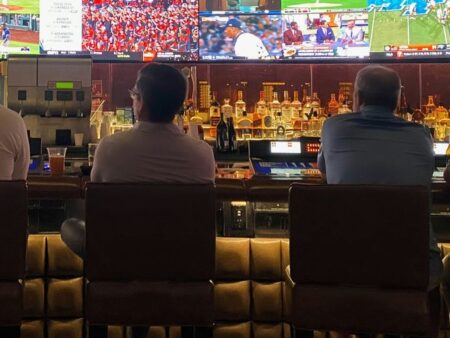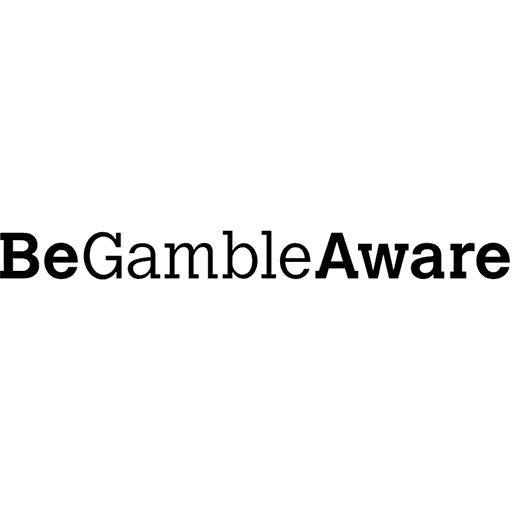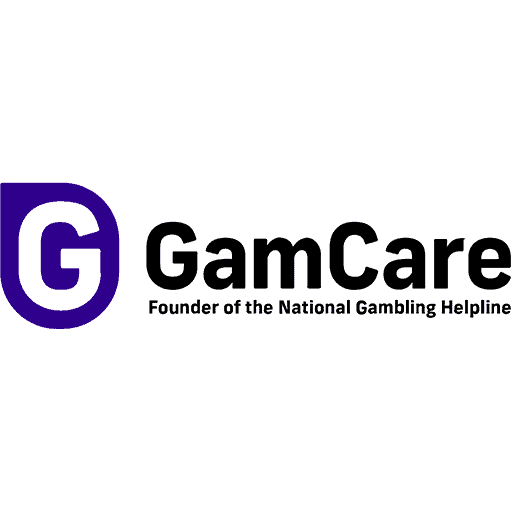Gambling can be a fun way to pass the time, but it’s crucial to know the rules, especially when it comes to age restrictions. In Canada, the legal gambling age can change depending on where you are and what type of gambling you’re interested in. This article will break down everything you need to know about the legal gambling age in Canada as we head into 2025. Understanding these laws will help you stay informed and gamble responsibly.
Key Takeaways
- The legal gambling age in Canada varies by province, typically set at either 18 or 19 years old.
- Casinos, online gambling, and lotteries may have different age requirements; always check local laws.
- Identification checks are common at casinos and online platforms to verify age.
- Underage gambling can lead to serious consequences for both minors and gambling establishments.
- Responsible gambling practices include knowing the legal age and seeking help if needed.
Legal Gambling Age Across Canada

Overview of Age Requirements
Gambling laws in Canada aren’t uniform; they differ depending on the province or territory. The legal gambling age is either 18 or 19, depending on where you are. This age determines when you can legally participate in activities like buying lottery tickets, playing at casinos, and engaging in online gambling. It’s important to know the specific rules where you live or are visiting to avoid any legal issues.
Variations by Province
Here’s a quick rundown of the legal gambling age across different provinces:
- 18: Alberta, Manitoba, Quebec
- 19: British Columbia, New Brunswick, Nova Scotia, Ontario, Prince Edward Island, Saskatchewan, Newfoundland and Labrador, and all three territories (Yukon, Northwest Territories, Nunavut).
This means that if you’re 18 and in Alberta, you can legally gamble. But if you cross the border into British Columbia, you’d need to be 19. It’s a patchwork system, so always double-check!
Importance of Knowing Your Local Laws
It’s really important to know the gambling laws in your area. Ignorance isn’t an excuse, and underage gambling can lead to some serious consequences. Plus, gambling establishments have the right to refuse service if they suspect you’re underage. So, do your homework and stay on the right side of the law. If you’re in New Brunswick, you should know the sports betting options available to those 19 and older.
Knowing the local gambling laws isn’t just about avoiding trouble; it’s about being a responsible participant. Gambling should be a fun activity, and that includes making sure you’re doing it legally.
Legal Gambling Age for Casinos
Age Requirements by Province
When you’re planning a casino trip in Canada, it’s super important to know the age rules. It’s not the same everywhere! Some provinces let you in at 18, while others make you wait until you’re 19. For example, if you’re in Alberta, Manitoba, or Quebec, you can gamble at 18. But if you’re in British Columbia, Ontario, or Nova Scotia, you’ll need to be at least 19. Always double-check before you go to avoid any disappointment at the door.
Access to Casino Facilities
Okay, so you know the age, but what does that really mean? It’s not just about placing bets. It’s about getting into the casino in the first place. If you’re underage in a province, they won’t let you in, period. And even if you’re of age, be prepared to show some ID. Casinos are pretty strict about this, and they have to be. They don’t want to risk fines or losing their license. So, yeah, that means no sneaking in with a fake ID – it’s just not worth the trouble.
Identification Checks at Casinos
Casinos take checking IDs seriously. They usually have security at the entrance who will ask for proof of age. Acceptable forms of ID usually include a driver’s license, passport, or other government-issued photo ID. Some casinos might even use electronic scanners to verify the ID’s authenticity. If you look young, don’t be surprised if they ask for ID, even if you’re well over the legal age. It’s just part of their process to ensure age compliance.
Casinos have a responsibility to prevent underage gambling. They train their staff to recognize fake IDs and to spot signs of underage individuals trying to enter the premises. This helps maintain a safe and legal environment for everyone.
Here’s a quick rundown of what to expect:
- Security guards at entrances.
- Request for valid photo ID.
- Possible use of ID scanners.
- Refusal of entry if underage or without valid ID.
Legal Gambling Age for Online Gambling
Comparison with Land-Based Casinos
When it comes to online gambling, the age restrictions often mirror those of traditional, land-based casinos. In most provinces where the legal gambling age is 19, that same age applies to online platforms. However, it’s not always a perfect match. You might find some slight differences depending on the specific site and its licensing. For example, online Ontario casinos usually require you to be 19, just like their physical counterparts. It’s always a good idea to double-check the specific rules of the online casino you’re using.
Age Verification Processes
Online casinos have to make sure you are who you say you are, and that you’re old enough to play. Here’s how they usually do it:
- ID Upload: You’ll probably need to upload a copy of your driver’s license, passport, or other government-issued ID.
- Address Verification: They might ask for a utility bill or bank statement to confirm your address.
- Credit Card Verification: Using a credit card can help verify your age and identity.
It’s important to remember that providing false information or attempting to circumvent these verification processes is illegal and can lead to serious consequences. Always be honest and upfront when creating an account on an online gambling platform.
Popular Online Gambling Platforms
There are tons of online gambling platforms available to Canadians, but it’s important to choose reputable and licensed sites. Some popular options include:
- BetMGM: Known for its wide range of casino games and sports betting options. Remember to gamble responsibly and visit BetMGM.com for terms and conditions.
- Caesar’s Palace Online Casino: A well-known brand with a variety of games, but be aware that some online casinos, like Caesar’s Palace, may have different age limits than Ontario laws.
- DraftKings: Another popular platform offering sports betting and casino games.
Always make sure the platform is licensed and regulated in your province or territory before you start playing. This helps ensure fair play and protects your money. Also, be aware of the legal gambling age in your area before signing up for any online gambling platforms.
Legal Gambling Age for Lottery and Bingo
Age Restrictions for Lottery Tickets
Okay, so when it comes to buying lottery tickets in Canada, the age thing can be a little confusing. It’s not the same everywhere. In most places, you gotta be 19 to buy a ticket, but there are a few provinces where you can start playing at 18. It really depends on where you are.
Here’s a quick rundown:
- 19 years old: Most provinces and territories.
- 18 years old: Alberta, Manitoba, and Quebec.
- Check local regulations: Just to be 100% sure!
Bingo Participation Guidelines
Bingo is pretty similar to the lottery when it comes to age restrictions. Again, most provinces stick to the 19-year-old rule, but a few let you play at 18. It’s always a good idea to double-check before you start dabbing those cards. You can find gambling regulations on provincial websites.
Regional Differences in Age Requirements
So, why the difference between provinces? Well, it often comes down to local laws and regulations. Some provinces might have different views on gambling or different priorities when it comes to protecting young people. Whatever the reason, it means you need to be aware of the rules in your specific area. It’s not a one-size-fits-all situation. For example, in Ontario, the legal age to play the lottery is 18.
It’s important to remember that these age restrictions are in place for a reason. They’re designed to protect young people from the potential harms of gambling and to promote responsible gambling habits. So, even if you’re eager to play, make sure you’re old enough and that you’re gambling responsibly.
Penalties for Underage Gambling

Legal Consequences for Minors
Okay, so you’re thinking about gambling before you’re of age? It’s really not worth it. Underage gambling carries some serious penalties, and they can mess with your future. We’re talking fines, potential legal action, and even a criminal record in some cases. It really depends on where you are in Canada and how strict the local laws are. Think about it – is risking all that really worth a few bets?
Impact on Gambling Establishments
It’s not just the underage gambler who gets in trouble. Places that let underage people gamble also face consequences. We’re talking hefty fines, license suspensions, or even losing their license altogether. Gambling establishments have a responsibility to check IDs and make sure everyone playing is of legal age. If they don’t, they’re risking a lot. It’s a big deal for them to maintain compliance with gambling ages.
Preventive Measures and Education
So, what’s being done to stop underage gambling? A lot, actually. There are public awareness campaigns, educational programs in schools, and stricter ID checks at casinos and other gambling spots. The goal is to make sure young people understand the risks and consequences of gambling before they’re old enough. Plus, it’s about teaching responsible gambling habits early on. It’s all about prevention, and making sure people know the rules and why they’re in place.
It’s important to remember that gambling addiction can affect anyone, regardless of age. If you or someone you know is struggling with gambling, there are resources available to help. Don’t hesitate to reach out for support. There are people who care and want to help you get back on track.
Responsible Gambling and Age Compliance
Promoting Safe Gambling Practices
It’s super important to gamble responsibly, no matter your age. This means knowing your limits and sticking to them. Gambling should be fun, not a source of stress or financial trouble. Here are some ways to keep things in check:
- Set a budget before you start and don’t exceed it. Decide how much you’re okay with losing and stop when you reach that point.
- Keep track of the time you spend gambling. It’s easy to lose track, so set a timer or alarm to remind yourself to take breaks.
- Don’t gamble when you’re feeling down, stressed, or under the influence. Your judgment might be impaired, leading to bad decisions.
Responsible gambling isn’t just about avoiding problems; it’s about making informed choices and staying in control. It’s about ensuring that gambling remains a form of entertainment, not a necessity or an escape.
Resources for Responsible Gambling
If you think you might have a gambling problem, or if you just want to learn more about responsible gambling, there are resources available. Seek help from these organizations:
- ConnexOntario: They provide confidential support and information about problem gambling, mental health, and addiction services. You can reach them at 1-866-531-2600.
- The Responsible Gambling Council: This organization offers resources and programs to prevent problem gambling and promote responsible choices.
- Gamblers Anonymous: A fellowship of people who share their experience, strength, and hope with each other to solve their common problem and help others to recover from a gambling problem.
The Role of Education in Compliance
Education is key to preventing underage gambling and promoting responsible gambling habits. It’s not just about knowing the legal age; it’s about understanding the risks and making informed decisions. Gambling establishments, schools, and community organizations all have a role to play in raising awareness. For example, casinos in Ontario check identification to verify age.
Here’s what effective education should include:
- Information about the risks associated with gambling, including financial, social, and emotional consequences.
- Strategies for managing gambling behavior, such as setting limits and taking breaks.
- Information about where to find help if you or someone you know has a gambling problem.
Future Changes in Gambling Age Regulations
Potential Legislative Changes
It’s tough to say exactly what the future holds, but there’s always talk about tweaking the rules. One thing to watch is whether provinces will consider lowering or raising the gambling age. Some argue for lowering it to align with the drinking age in certain provinces, while others push for raising it, citing concerns about problem gambling. These discussions often depend on public opinion and studies on the social and economic impacts of gambling.
Impact of Online Gambling Trends
Online gambling is changing so fast, and it’s putting pressure on existing laws. It’s easier than ever for young people to access online casinos and betting sites, which raises questions about age verification and enforcement.
Here are some potential impacts:
- Stricter ID checks for online platforms.
- More sophisticated geo-location technology to prevent access from restricted areas.
- Increased collaboration between provinces to regulate online gambling consistently.
Public Sentiment on Age Regulations
What people think really matters. If there’s a strong public push for change, lawmakers are more likely to listen. Right now, there are different views. Some people think the current age limits are fine, while others believe they should be adjusted. These opinions are often shaped by personal experiences, media coverage, and discussions about responsible gambling. Keeping an eye on iGaming regulations is important to understand the full picture.
It’s worth noting that any changes to gambling age regulations will likely involve a lot of debate and research. Provinces will need to weigh the potential benefits and risks carefully before making any decisions. This includes looking at the impact on revenue, tourism, and, most importantly, the well-being of their citizens.
Wrapping It Up: Know Your Gambling Age
So, to sum it all up, the legal age for gambling in Canada really depends on where you are and what kind of gambling you’re into. Some places let you start at 18, while others make you wait until you’re 19. It’s super important to know the rules in your province or territory before you jump into any gambling activities. Always keep in mind that following these age rules helps keep things safe and fun. By being aware of the legal age, you can enjoy gambling responsibly and steer clear of any trouble that comes with underage gambling.
Frequently Asked Questions
What is the minimum age to gamble in casinos in Canada?
The minimum age to gamble in casinos in Canada is either 18 or 19, depending on the province. For example, in Alberta and Quebec, you can gamble at 18, while in Ontario and British Columbia, you must be 19.
Can I gamble online if I am underage?
No, you cannot gamble online if you are underage. The age requirement for online gambling is the same as for land-based casinos in your province.
What identification do I need to gamble?
You will need to show a valid ID, like a driver’s license or passport, to prove your age when you go to a casino or buy lottery tickets.
Are there different age rules for lottery and bingo?
Yes, the age rules for lottery and bingo can vary. In some places, you can play the lottery at 18, while in others, you must be 19.
What happens if a minor tries to gamble?
If a minor tries to gamble, there can be legal consequences for them and the gambling place. It’s important for everyone to follow the age rules.
How can I learn more about responsible gambling?
You can find information about responsible gambling through various resources, like websites, hotlines, and local support groups.









